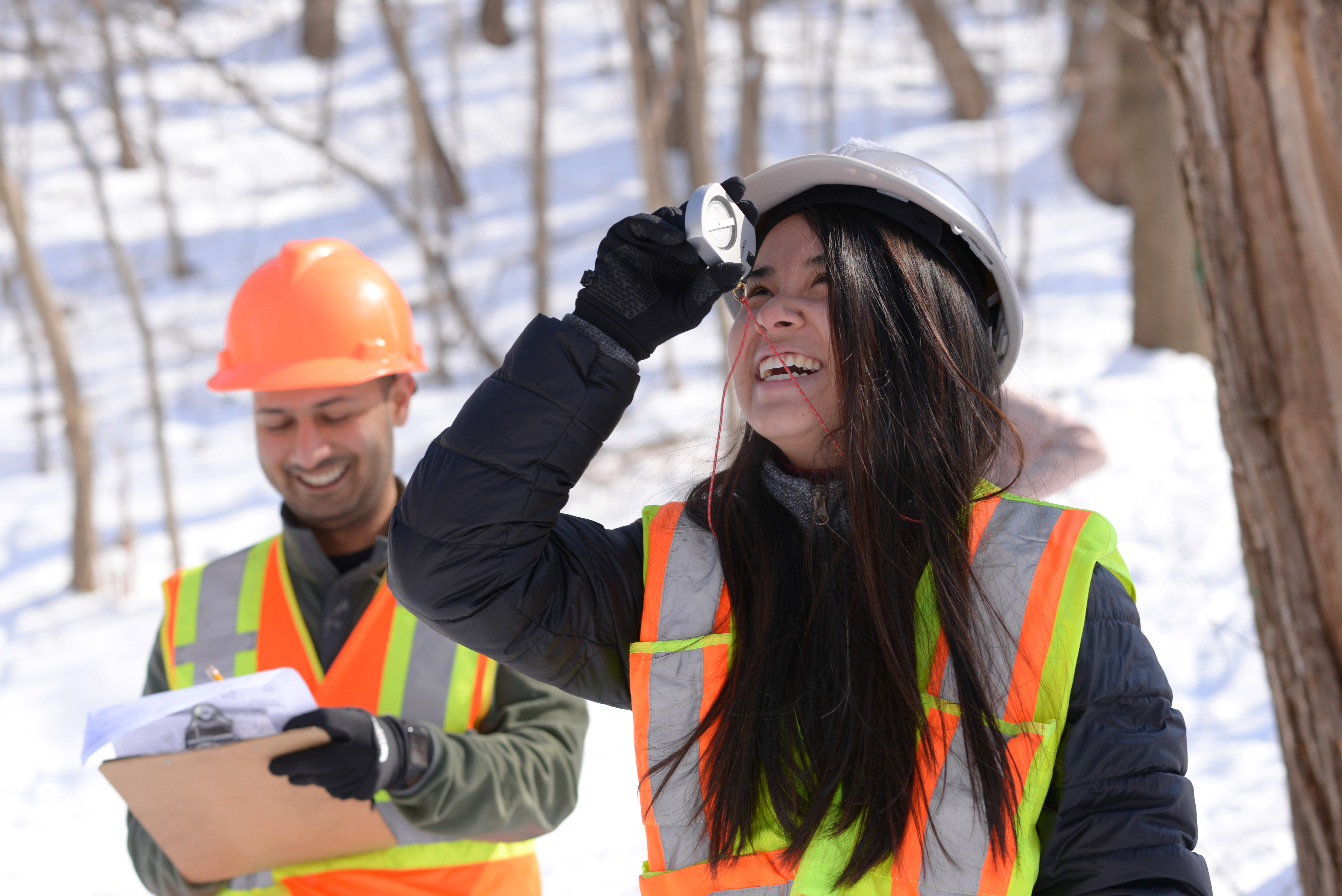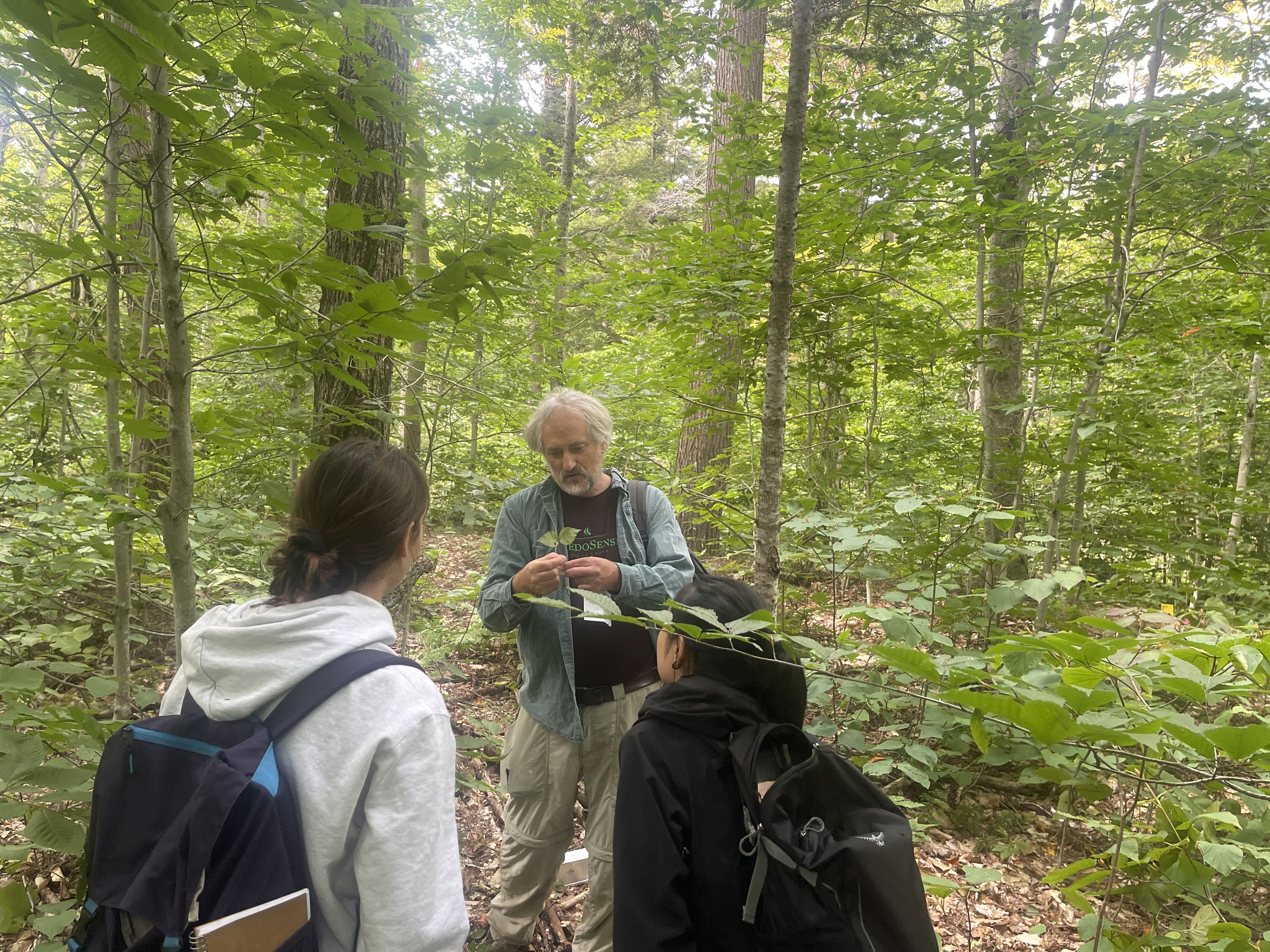Master of Forest Conservation

Description
The pioneering Master of Forest Conservation (MFC) program at the University of Toronto's Daniels Faculty of Architecture, Landscape, and Design prepares graduates for a profession that has profound impacts on all living organisms and on the sustainability of human social and economic systems.
During a course-intensive 16-month program, students get a balanced view of forest conservation by focusing on three pillars of sustainability: environmental, social and economic. The program uses experiential learning and team-based projects to teach students field skills and expose them to a variety of forest ecosystems and forest conservation challenges in Canada and worldwide.
Why choose MFC at U of T?
- Real-world experience: A three-month internship with an organization aligned with your interests. We help secure positions with the broadest spectrum of sectors of any forestry or conservation program in Canada, including industry, all levels of government, and private and non-governmental organizations at home or abroad.
- Flexibility: You don’t need previous education in Forestry or Environmental Science to be admitted to the MFC program, we will fill in the gaps, whether you are a graduate of English, political science, engineering or biology. Enroll on a full-time, extended full-time, or part-time basis and tailor the program to meet your interests.
- Collegiality: Each incoming class is small, giving you easy access to professors and instructors passionate about their teaching and research and invested in your personal success. Coursework is often collaborative, helping you form close working relationships with your classmates, which often blossom into lifelong friendships.
- International exposure: An optional international field course to destinations such as Malaysia, Brazil, the western United States, Scandinavia, China and Spain.
- Practice and job prospects: Domestic and international field courses give you hands-on experience. Accreditation widens the job market for our students to include positions that require registered professional foresters (RFPs). Our established relationships in all sectors will expose you to prospective employers throughout the program, including forest industry groups, NGOs, government agencies, professional associations, and community groups.
Due to the program’s interdisciplinary nature, a variety of undergraduate degrees will give students a suitable background for the MFC program. These include (but aren’t limited to) ecology, landscape architecture, environmental sciences, forestry, natural sciences, biology, geography, geology, agricultural sciences, as well as relevant social sciences such as economics, anthropology and history.
Experience in management, communications, ecological monitoring and restoration, conservation planning, forestry, arboriculture, horticulture, landscape design, economics and policy are all suitable professional backgrounds for the MFC program.
Successful applicants will have completed a bachelor’s degree from a recognized university (check the School of Graduate Studies admissions site for information on equivalent international qualifications) with an average of at least a mid-B in each of their final two years of study (University of Toronto 72.5–76.4%).
Curriculum
The MFC program is course-based. Full-time students complete the program in 16 months. Extended full-time students (EFT) are allowed an extra year to complete the program (28 months). Part-time students will work with faculty and staff to build an appropriate schedule.
- Field camp: A nine-day field camp in Haliburton Highlands kicks off the program in September. It provides an introduction to the issues and principles of forest conservation and includes intensive data collection and identification of different taxonomic groups.
- Core courses: Students enrolled in the program full-time will take nine core courses during the first two sessions of the program (September–December and January–April), and usually one elective course in the second session (January–April).
- Summer field course: In the summer, students are expected to attend a field course, either the international field course offered by the faculty that year or an urban forestry field course held locally.
- Internship and capstone project: A mandatory internship component is completed over the summer, and the final fall semester is taken up with one final core course, elective courses (as needed), and the completion of a capstone project, often related to or generated by the student’s internship.
Learn more about courses and structure, and view the degree diagram on the Forestry website.
Accreditation
The MFC program is accredited by the Canadian Forestry Accreditation Board. Accreditation by an external body ensures that our students graduate with the competencies required to practice professional forestry.
Admissions
More information on admissions for the Master of Forest Conservation program is available on the Daniels Faculty's Forestry website.





